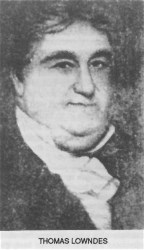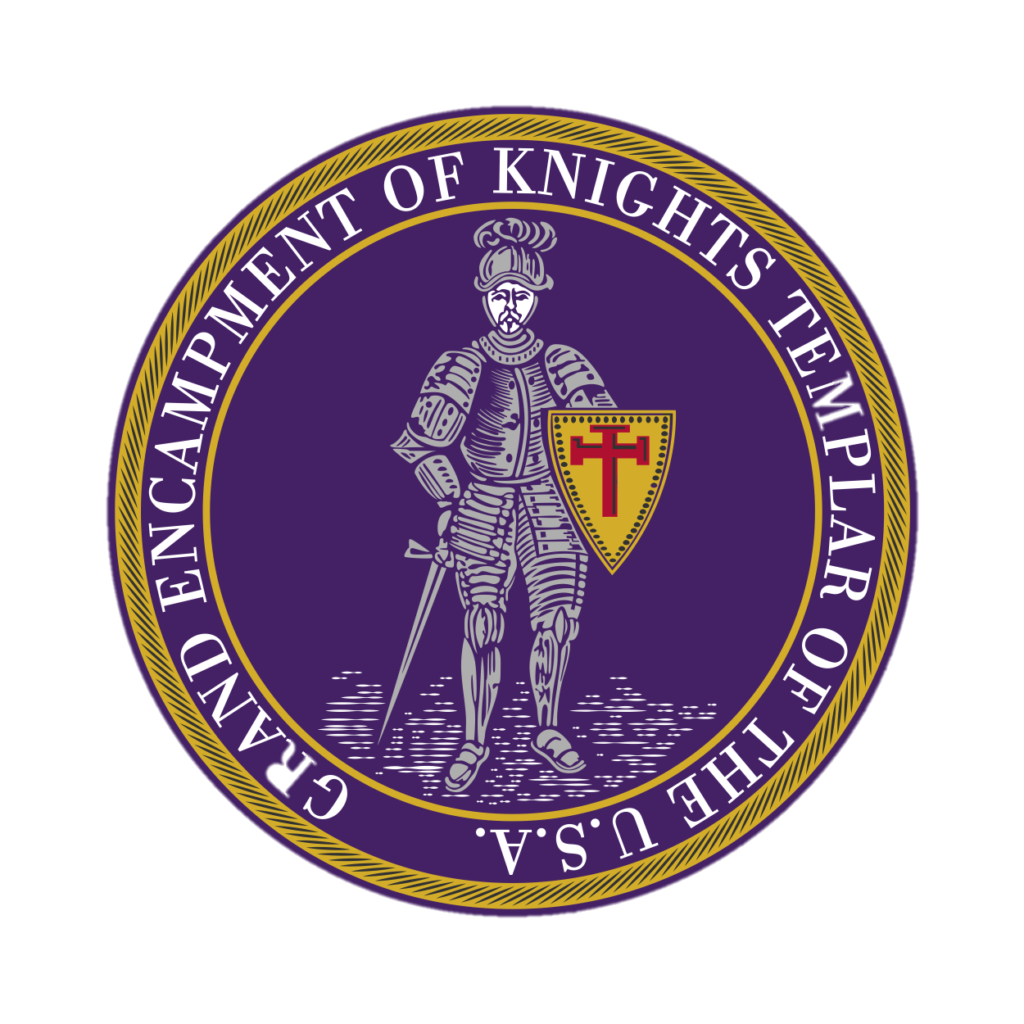Thomas Lowndes
Thomas Lowndes was born in New York on June 20, 1762. He started in business as a baker but later became a grocer. In 1807 he was Superintendent of St. John Hall, which position he held for seven years. On September 2, 1817, he was appointed Warder of the Debtors Prison. He married Miss Marie L. Milderberger on December 6, 1797, and died in New York on December 14, 1825. The Proceedings of 1826 carries the following resolution:
Resolved, That the late Most Eminent Sir Thomas Lowndes, Esq., of the City of New York, General Grand Warder of the General Grand Encampment of the United States of America, by his unwearied zeal in the cause of Freemasonry generally, but more particularly in the formation of the General Grand Encampment, justly merits our most profound respect and veneration, and that his memory should be cherished with the warmest affection by this General Grand Encampment and all who wish well the Order of Knighthood.”
Sir Lowndes was raised in Washington Lodge No. 21 in 1802 and was Master of the Lodge in 1808 and in 1814. He became active in the Grand Lodge and in 1814 was appointed Right Worshipful Grand Visitor, which carried the duties of the District Deputy Grand Master and Grand Lecturer combined. He was a member of Jerusalem Chapter No. 8 and served as High Priest from 1806 to 1808. He was Deputy Grand High Priest of the Grand Chapter of New York in 1812-13-14.
On September 2, 1810, old records show that a Council of Royal Masters was organized at St. John Hall, under the name of Columbian Grand Council. It is pretty well decided that the degree of Royal Master was the creation of Thomas Lowndes.
In 1808, when Abram Jacobs started conferring the higher degrees of the Scottish Rite, Lowndes was one of the first candidates, and became a charter member of Aurora Grata Lodge of Perfection. Later he withdrew and became associated with Joseph Cerneau and was a Grand Inspector General of the 330 of the Cerneau Sovereign Grand Consistory.
He was one of the organizers of Columbian Encampment No. 1 in 1810 and served as its Eminent Commander until 1820. He became Deputy Grand Master of the Grand Encampment of New York under DeWitt Clinton. In 1816 he was appointed the delegate of the Grand Encampment of New York to attend the Convention in Philadelphia with the view of establishing a General Grand Encampment. At the meeting in New York, he aided in the organization of the General Grand Encampment on June 21, 1816, and was elected General Grand Warder. At the Conclave of 1819 he was reelected to the same office.


